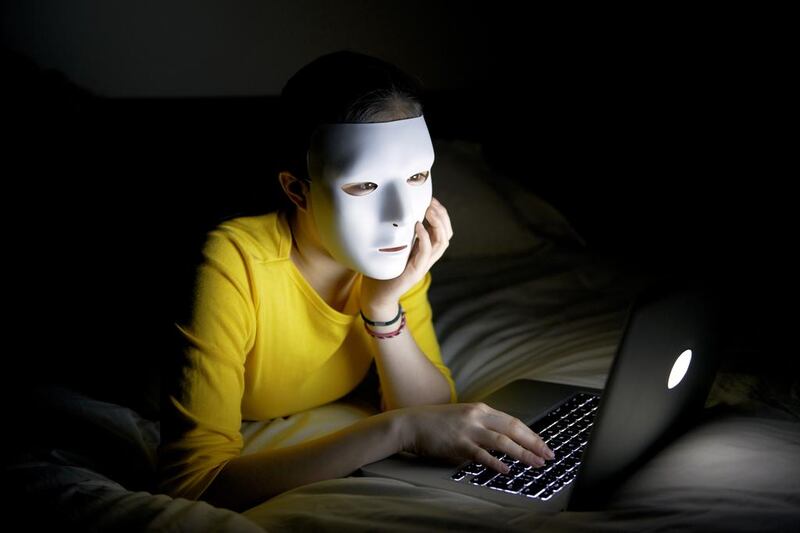Jon Ronson is telling the story of Justine Sacco, the woman who on December 20, 2013 boarded a flight in London as a complete unknown, and landed in Cape Town as public enemy number one after posting an offensive tweet about Aids.
“On Twitter that night we were like toddlers crawling towards a gun,” said Ronson, author of the book So You’ve Been Publicly Shamed, addressing an audience at the Emirates Festival of Literature. “She was arrested, tried and convicted before she even knew there was a trial.”
Ms Sacco’s story has became a cautionary tale for our times, synonymous with the modern day phenomenon of online public shaming.
“Later I asked Sam Biddle [the journalist who spread the offending tweet] how it felt to start the onslaught on Justine Sacco,” Ronson said. “He said it felt ‘delicious’, and then he said ‘I’m sure she’s fine now’. But she wasn’t fine.”
A certain Donald Trump even tweeted his disgust. “We have a Twitter troll as a president,” Ronson said, prompting laughter.
But Ronson, in conversation with Emirati social commentator Sultan Al Qassemi, reminds us there is nothing funny about the consequences of public shaming – or the motives behind it.
“You know what this is? This is misogyny wrapped up in the warm glow of self-righteousness,” he said of the attacks on Ms Sacco.
“Everyone thought they knew everything about Justine from that one Tweet, which is ridiculous,” he added. “This is one of the problems with social media, it is creating a world of magnificent heroes or sickening villains, it’s a stage for constant artificial high dramas.”
Public shaming knows no boundaries, geographical or cultural. In the aftermath of the Istanbul attacks in the early hours of New Year’s Day, Muslim victims, to the horror of their grieving families, were shamed for the perceived crime of being at a nightclub. Extremists on social media went as far as to say the victims deserved their fate for being in the presence of alcohol.
Al Qassemi called the abuse “completely unacceptable, completely inaccurate”. The nightclub where the shooting took place is an establishment that caters to families as well as young revellers.
“Even if they were in a club, they cannot judge people on this context,” he later told The National, “You don’t judge an individual’s entire life based on a choice they made on a specific day.”
“For these individuals it could have a traumatic impact on their lives and could lead to suicide,” Al Qassemi said. “So we have to be very careful what we say, not only about the individuals who died, but also their families.”
Al Qassemi identifies himself as “a libertarian, a liberal person” and insists that people deserve the right to live their lives without judgment, be it from conservatives or liberals.
“I would not go to restaurants that would not allow women in the hijab, for example,” he said. “This is something that I take a moral stand against. It happened to me a couple of times in the Middle East. I think women in the hijab have the right to eat anywhere. So you can’t say ‘this is a woman in the hijab. What is she doing in that club?’ Maybe her friends went, why shouldn’t she go, it’s just music.”
Social media, according to Al Qassemi, is a completely “new animal”, one whose impact on people’s lives is still massively underestimated.
With a Twitter following of more than 490,000, Al Qassemi is no stranger to online criticism himself. In 2013 he wrote a now famous essay for Al Monitor titled “Thriving Gulf Cities Emerge as New Centres of Arab World”, in which he stated his belief that Abu Dhabi, Dubai and Doha are now replacing the historical Arab capitals of Cairo, Beirut, Baghdad and Damascus as centres of culture. It earned him rebukes from traditionalists and outright abuse from trolls.
“I want to embrace the criticism, I know I’m a public figure, and I’ve developed a thick skin, and so I have adapted to it. But somebody like Justine Sacco who’s never been in the public domain before, they don’t know how to deal with it. But I do, I take it in my stride and I incorporate it in my talks.”
Ronson, too, believes that calling for a ban on public shaming is over the top. If done right, and against appropriate targets, it remains a useful tool.
However, Ronson says that though public shamers eventually move on to new targets, it is often, tragically, too late.
“I know several stories where the person killed themselves,” he said. “And of course when somebody commits suicide at our hands, do we pose for self-reflection? No, we go totally silent and pretend that it didn’t happen and carry on. We are constantly convincing ourselves that the bad things we do aren’t bad.”
Al Qassemi reminded Ronson of a memorable line he used a few years ago: “Facebook is where you lie to your friends, Twitter is where you tell the truth to strangers.”
The author no longer believes this to be true.
“That’s the early days of Twitter when people could be unselfconscious and voiceless people had a voice, and it was like the Garden of Eden,” he said. “It’s like we learnt nothing from Animal Farm. Twitter was this great unselfconscious place where people could be themselves and admit shameful secrets about themselves. But from this Garden of Eden grew this.”
“We all polluted the waters.”
Ali Khaled is a freelance writer and editor in Dubai
On Twitter: @AliKhaled_





